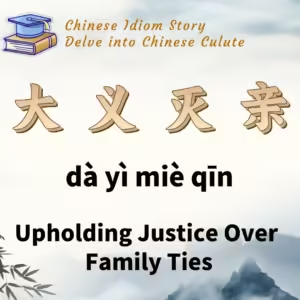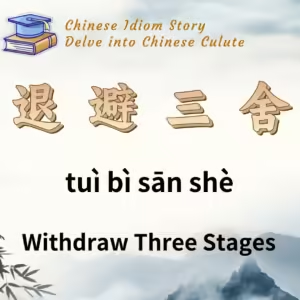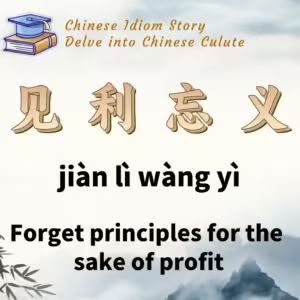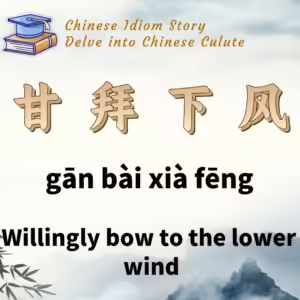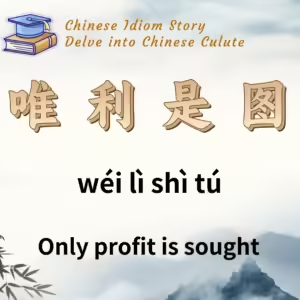
Chinese Idiom: 唯利是图 (Wei Li Shi Tu)
English Translation: Only profit is sought
pīn yīn: wéi lì shì tú
Idiom Meaning: This idiom means that one is willing to do anything as long as there is profit to gain. It implies a focus solely on material gain without regard for morality or principles.
Historical Source: Zuo Zhuan (左传) – “The Commentary of Zuo,” specifically from the 13th year of Duke Cheng.
Idiom Story:
In 580 BC, Duke Huan of Qin and Duke Li of Jin met at Linghu (modern-day Linyi County, Shanxi) to form an alliance and signed a friendly treaty. However, shortly after the agreement was made, Duke Huan of Qin broke the pact, attempting to ally with the State of Chu and plotting with the Di tribes to attack Jin.
By the following spring, relations between Chu and Jin had improved, and both states agreed to defend each other against any aggressors. When Duke Huan of Qin’s intentions to attack Jin became known, Duke Li of Jin dispatched Wei Xiang, the son of Wei Zhi, to formally sever ties with Qin, delivering a letter of termination.
In this letter, attributed to Wei Xiang, Duke Li criticized Duke Huan for breaking the alliance and betraying their mutual interests. It referenced a statement from the King of Chu, who had reported that Duke Huan of Qin had declared, “I associate with Jin solely for profit; nothing else matters.”
After the alliance was broken, conflict ensued, culminating in a battle in April of that year at Masi (now in Jingyang County, Shaanxi). The Jin army, supported by other states, emerged victorious, while the Qin forces faced defeat, largely because they lacked a justifiable cause for the war.
The phrase “唯利是视” (I only see profit) from the King of Chu became synonymous with the behavior exhibited by Duke Huan of Qin, and eventually evolved into the idiom “唯利是图,” denoting a singular focus on personal gain.

